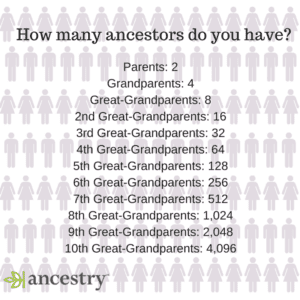Blog updated 01 April 2025:
Are you thinking of starting your own genealogy services business? Or, perhaps you have been in business a while and wondering how to grow and develop. Here I share some tips to help you decide your route to a successful freelance genealogist.
- Set your goals
Firstly, decide what you would like to offer. Are you looking to specialise in a niche area such as house history, local history or DNA? Or, perhaps you would like to offer everything, a good ‘all rounder’? Don’t worry too much at this stage. You don’t need to specialise this early in the setting up phase, there is plenty of time to try out which area you are more experienced in, and the areas which may need further refinement. It is good to have a goal and something to aim for. - Social Media
Set up at least one social media account, nowadays there are a few to choose from. In genealogy circles, I find that most people use X/Twitter and Facebook. I have profiles on each of these and I have created a business page on my Facebook business page: https://www.facebook.com/joannegenealogy
Other social accounts include Instagram (just post a picture or two to keep things moving, but keep it separate to your Twitter & Facebook posts). Then there is LinkedIn. At first I didn’t get it, I didn’t get the point of LinkedIn. But now I can see it is used more for people that are in business, for businesses, for professionals and good for job hunting. I do have a profile on LinkedIn but must admit, I don’t post much on there as I feel my audience is elsewhere (X/Twitter !!)
New on the list is Bluesky look for the white butterfly logo – its similar to X/Twitter without advertisements (for now!)
Did you know that you can schedule your Facebook posts and Tweets? Click here for a separate blog and instructions
Tiktok, Stream, Pinterest, Snapchat etc. etc. All useful tools if you want to be everywhere but to be honest, and for me, its best to stick to a couple and make an impact in one place initially. But that’s just my opinion. An update about the various social media platforms will be coming soon, and in response to changes within Twitter, X and Meta – subscribe to find out more. - Post a blog or a Tweet or two!
Let people know you are there. I started with ‘liking’ a few posts. Then I started to re-tweet or share within my business page. After a few months, I wrote 2 sentences on an image I had seen on Ancestry.
Here it is…….
Generations Relationship Chart:
This may explain why a family tree can be so tricky to display all ancestors. I start with what I know, then work backwards and sideways up to the first 4 generations, anything after that is a bonus!

As you can see, its not very much but at least it is a start! You will soon get the hang of it. A regular blog, even if it as short as this example above, keeps your listeners active and you will soon get noticed, for the better!
4. Create a website – even if it’s just a front page
Let people know who you are, what you can offer and how they can contact you. It’s not imperative that you have a website at the beginning but you will need a form of communication and to be able to direct traffic and potential clients to your website. GoDaddy and Wix are good for a basic easy to set up, with templates, websites for little initial outlay. https://www.godaddy.com or https://wix.com although there are others so again, best to shop around.
5. Finance
You may hear from certain business start-up companies and organisations that you need finance, that you need to set up a business bank account or that you need to create a business plan. Nope. Well, not initially anyway. Not unless you are wanting funding for a project, start-up grants or large flashy premises.
Most genealogists work from home, on a freelance or sole trader basis. You may want to keep your bank accounts separate from your personal accounts, but it is not a legal requirement to have a business bank account. You can use a separate current account from your usual bank. If you do want a business bank account then there are some free accounts that do not incur business transaction fees such as Tide or Starling Bank. It’s good to shop around.
https://www.tide.co https://www.starlingbank.com/business-account/
If you do want to make a business plan, either as a copy for your own ideas or for membership for associations, then please check out the resources pages above for a business plan template you can adapt to your own circumstances.
If you choose the sole-trader route, you will need to consider tax and national insurance (NIC) payments (various classes apply depending on turnover – see https://www.gov.uk/national-insurance/national-insurance-classes ). This applies (in the UK) to businesses who have made their first £1,000 (as at 01/04/2025). More details can be found on the Governments business pages and self-assessment information https://www.gov.uk/browse/business/setting-up
There are different ‘rules’ surrounding Limited Companies, so please consider your business and personal requirements and research via the Government website. The Federation of Small Businesses (FSB) also has useful information and resources https://www.fsb.org.uk/ Limited Companies can be started once the business has traded, so that is another option.
Making Tax Digital is a new-‘ish’ consideration for businesses who are above the turnover threshold and it’s aimed at making it easier to pay VAT and other business taxes. Remember that some business services may operate on a tax-exempt basis and therefore VAT does not apply. https://www.gov.uk/government/publications/making-tax-digital
6. Insurances
This one is a little tricky depending on the type of service you may offer. One thing you will need to do is to register with the ICO (Information Commissioners Office) as a genealogist. It is currently £40 per year (or £35 if paying by direct debit) and as you will be handling personal client data, is essential to cover you, your business and your customers. https://ico.org.uk/
Other insurances may be wise to have such as professional indemnity insurance (to protect you from being taken to court over damages/misleading information/incorrect advice), public liability insurance (if clients will be visiting you in your home or premises or if you are meeting clients face-to-face, or attending events for business), critical data loss insurance (should the internet crash and fail to re-connect or backup), cyber insurance (something to consider), business insurance for working at home and for the use of your vehicle for business usage. You may not need them all, or from day one. Weigh up which you will require. Some home insurance policies may cover working from home, but it is best to check with your insurer and your current policy. Some insurance companies combine insurances so it pays to shop around and ‘go and compare’! All is from a UK point of view, overseas genealogists should check within their area what is required.
7. Networking
It is a good idea to start networking with your peers and colleagues. At first I didn’t know anyone. Now I recognise names and faces via social media, Zoom meetings, forums and publications. Now we are finally getting out of the Covid zone, face-to-face meetings are beginning to happen again and it is great to finally meet up with the people I’ve met over Zoom, GoMeet, Teams and WhatsApp!
Of course, some meetings are still being held virtually. A good example is the Register of Qualified Genealogists (of which I am one of the Directors), who hold CPD and mentoring sessions all online. Check them out here at www.qualifiedgenealogists.org for membership info and to search the Register.
8. Equipment
A good laptop and a backup option are the main tools you will need. Other items can be sought if needed, like a printer if you are producing printed material, client reports or pedigree trees. An additional monitor can be useful if you are currently using the laptop – it helps to cut down on the screen glare and minute text too!
A headset or earphones and a microphone, often built in to the headphones but can be purchased separately. A webcam so you can be seen on your online meetings. And of course, a backup system – when was the last time you totally backed up your data? External hard drives are a good option, automate it to back up each day and also ensure that you don’t store it right next to the laptop/PC! Why? If there was the unfortunate break in, both would disappear in a flash with no 2nd backup, so good to make it hidden. As a rule of thumb I put in my diary to remind me to ‘back up your data 1st of the month!’ although most of my research now is stored in the cloud.
9. Genealogical software
This one is entirely a personal choice and I use Family Tree Maker. I’ve looked at other software and this seems to be the most popular, reasonably priced, fairly easy to use with regular updates. It connects to your Ancestry trees, Familysearch webpages, FMP and others once you programme in which sites you use regularly. Syncing regularly and an optional feature to upload to TreeVault are just a few features.
Other programmes such as LegacyTree have lots of different ways of working, saving and displaying your data. In addition, online sites like FMP (Find My Past), Ancestry, The Genealogist, MyHeritage etc. enable you to store some information on their sites without the need for software. However, it is better to have an ‘offline tree’ to work from so you know you have a complete copy of your own research.
10. Finally, your own wellbeing & work-life balance
Why do I mention this in a starting-up-in-business blog? Because you should remember to invest a little ‘you’ time. It’s quite easy when we are working from home, online, on our own agenda and not have at least an hour to think about our own personal wellbeing and work-life balance. Set yourself a daily routine. This eliminates staring at Facebook or researching until we can’t research any longer. Take time out, especially if you are stressing about a deadline or still trying to find that illusive ancestor from the 1700’s. Don’t be afraid to ask for help, the genealogical community – we are all there for you. To help and support each other. Being part of a genealogical association (RQG, AGRA, ASGRA etc.) also helps to support and be part of a wider network, bouncing ideas and answering queries.
Take a break, stretch the legs, go outside (even if its raining!) it’s amazing what a little break away can do. Feel energized about the day ahead, write a few notes about how your day’s work has gone (bullet points are always useful and easy to look back on) and remember to pat yourself on the back every now and then. You deserve it!

Please note: The above points are purely to be used as a guide and are my own personal opinions & perspective based on many years of owning and running businesses.
If I can help you in a genealogy capacity or business support, please Contact me.
